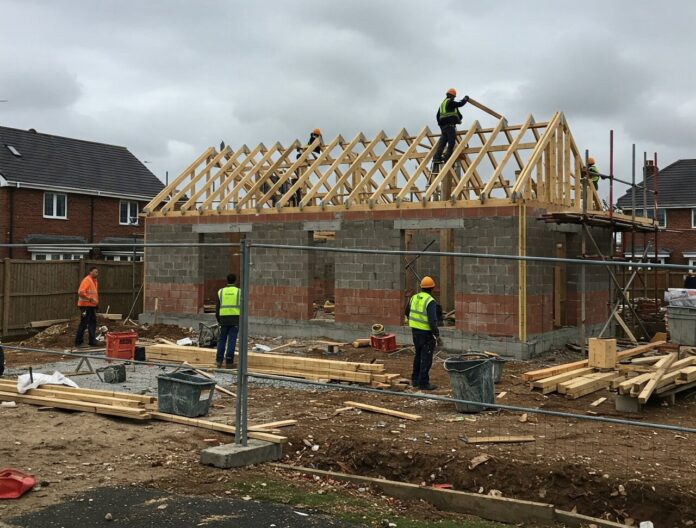Planning activity across England slowed in the second quarter of 2025, with the number of residential applications granted falling sharply, according to official figures from the Ministry of Housing, Communities and Local Government.
Between April and June, district-level authorities received 80,400 planning applications, a 5% drop compared with the same period last year. Decisions on 80,800 applications were made during the quarter, down 1% year on year.
Authorities granted 70,800 permissions – equivalent to 88% of all decisions – representing a modest 1% increase in absolute terms and a two-point rise in the approval rate compared with a year earlier.
FALLING RESIDENTIAL APPROVALS
The number of residential approvals, however, fell by 8% to 7,000, while commercial consents dropped by 7% to 1,500.
By contrast, householder developments – extensions, alterations and other domestic projects – rose by 4% to 44,000, making up more than half of all approvals.
Performance on major schemes remained broadly steady, with 91% of large applications decided within agreed timeframes, unchanged year on year. A smaller proportion – 23% – were determined within the statutory 13-week window, up three percentage points on last year.
Over the 12 months to the end of June, authorities granted 266,400 applications, down 5% on the previous year. Residential approvals fell more sharply, down 9% to 28,700, underscoring a wider slowdown in new housing supply.
BUILD BABY BUILD

Neil Leitch, managing director of development Finance at Hampshire Trust Bank, said: “The new Housing Secretary Steve Reed last week called on the industry to ‘build baby build’, but even with this reported rise the planning system remains a major hurdle.
“Recent data from the Home Builders Federation showed approvals are at their lowest level in 13 years, which makes the Government’s pledge to deliver a million homes this Parliament look increasingly unrealistic.
“Developers want to build, and lenders are ready to support them, but the delivery chain is simply not strong enough to turn ambition into delivery.”
HOUSEBUILDER BOOST
And he added: “The upcoming Budget is an opportunity to give housebuilding a genuine boost, not only by providing planning departments with greater resources but by attracting more skilled people into planning roles. Without that investment, the system will remain too slow and inconsistent to support the homes we need.
“We also need to be clear that today’s approvals are not tomorrow’s completions. Too many schemes stall between consent and delivery, and if that pipeline continues to thin out, the shortfall in housing output will only grow.
“Planning is not the only barrier developers face, but it is the one that unlocks everything else. For SME developers in particular, long delays and uncertainty can make schemes unviable before they even start.”



